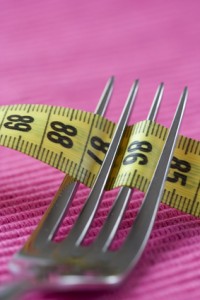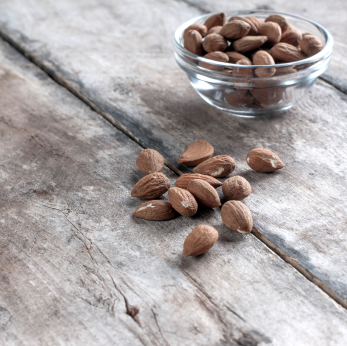Is daily stress adding to weight gain?
 According to a newly published online study, stress may be wreaking more than havoc on our bodies than previously reported. And, it’s quantifiable…at least with regard to weight gain.
According to a newly published online study, stress may be wreaking more than havoc on our bodies than previously reported. And, it’s quantifiable…at least with regard to weight gain.
I have certainly covered the impact of daily stressors on the hormone cortisol (think: craving comfort food, higher insulin levels and a midsection fat dump). However, study findings demonstrate that if women experience one or more stressful events the day before eating a fat-laden meal, it may slow the metabolism in such a way that over time leads to a whopping 11 extra pounds a year! Is prevention the best cure? Here’s what you need to know.
A bit of background…In this study, researchers asked fifty eight women to sample two separate calorie and fat dense meals consisting of eggs, turkey sausage, biscuits and gravy (940 calories, 60 g fat total, with the difference between the two meals saturated versus monounsaturated fats). To level the playing field and neutralize any possible factors that could affect the results, they were asked to forgo physical activity and alcohol, as well as vitamins and antioxidants in days leading up the study; they also fasted 12 hours after consuming three, standardized meals. On the day of the study visit, they completed several questionnaires assessing depression, physical activities and the degree of stress during the day before. Most of the stressors that the women reported were fairly common and interpersonal, for example arguments with colleagues or spouses, disagreements with close ones or work issues.
What they found….the more stressors that women reported having had experienced the day prior to the meal, the slower the metabolic rate and the higher the insulin levels following the fatty meal. (Metabolic rate refers to the amount of time required to burn calories and fat; insulin contributes to the way fat is stored.) More stress also meant less conversion of fat into fuel, meaning that these women were storing more fat. What’s more, the combination of depression history and a large number of stressors caused both an immediate spike in triglycerides following the high fat calorie meal and a two-fold slower decline in cortisol levels. Additionally, type of fat didn’t appear to influence these findings; regardless if it was saturated or monounsaturated, stress affected metabolism fairly equally.
One of the most interesting take-aways from the study is that the high -at, calorie-dense meals that the women consumed are equivalent to many common fast food choices, for example, a MacDonald’s Big Mac with cheese and medium fries provides 930 calories and 58 grams of fat. And, the researchers note that while most people eat every four to five hours, the women were only provided with one meal; this means that food choices appear to influence metabolic rates all day long. Yet another reason to keep healthy foods nearby when stressors hit.
Read MoreGaining weight at the speed of (night) light
“Bodies have their own light which they consume to live: they burn, they are not lit from the outside.”
― Egon Schiele
There are those of us who crave the light. And those who crave the darkness. Yet, disrupting the yin/yang that exists between the balance that defines the framework for these differences can wreak significant havoc on the body. In a review published online this week in Endocrine Reviews, Ohio State researchers have examined the effects of night light on the body’s circadian clock. And the results are not pretty.
Obesity has become a global problem and in the U.S. alone, numbers of people who qualify as obese (BMI>50) increased by as much as 75% between the years 2000 and 2005. Concurrent with this change has been the explosion in the use of electric light at night, which has bolstered the ability to self set the sleep/wake cycle. And while economically, this may be an attractive proposition, light at the wrong time of day, that is, light that disrupts the body’s natural circadian rhythm can lead to cancer, disrupt sleep, interfere with mood, impair cognition and perhaps most importantly, interfere with the metabolism. Data show that the increase in exposure to light tracks pretty closely to the eruption of global obesity and metabolic disorders. Moreover, even dim light (think: light from mobile devices) has been shown to alter circadian genes, especially those involved in nutrition and metabolism, affecting hunger and appetite. More troubling is the fact that the researchers say that this disruption is reciprocal, so, while interfering with the body’s circadian rhythm can lead to obesity, the metabolic changes that results in turn, alter circadian rhythms. This endless loop may be a key reason why so many of us are gaining weight. Other key factors include disruption in melatonin levels (which affects sleep pattern) and cortisol levels (related to stress), and unfortunately, these changes can occur through exposure to low light levels at the wrong time of day.
For all intent and purposes, modern society is a 24 hour society. Researchers say that over 99% of the US and Europe is exposed to urban light pollution and many people bring light into their homes at night, watch TV late night and use computers just prior to and in bed. They add that two-thirds of the population experience social ‘jet lag,’ a term coined to describe the habit of following different sleep schedules on the weekdays and weekends. And, the issue is an environmental one as well; the health of plants and animal species are affected by artificial light at night.
The solution may be to start to bring back the dark . Use black out curtains or shades, turn off hallway lights and keep the computers and phones out of the bedroom. Try to maintain a regular sleep schedule. And be mindful of when and how often you are eating at ‘irregular hours.’ Mostly, however, pay attention to your habits and see what changes can be made. There are many factors that contribute to obesity but it appears that for many of us, one of the most important might be nighttime light exposure.
As Schiele so aptly points out, we have our own light that does not require outside illumination, at least not at certain times of the 24 hour period that makes up a healthy, balanced life.
Read More
Pondering the weighty subject of… weight.

Guyside columnist Bob LeDrew will never be mistaken for this person.
I know I don’t. But I do see a certain uptick in that “time spent thinking about diet” graph in recent years.
As an adolescent, I was blessed with a metabolism that burned everything I could shovel into my mouth and then some. And even through most of my adult life, I really haven’t thought about diet beyond “when is the next meal?”
But as I edge toward 50, I have started to make some changes. Why? First, I have seen that little band of blubber around my waist grow from a finger-width to what is probably 15-20 pounds of weight I don’t really need. Second, my encounter with bladder cancer in 2006 led to some increased concern about health in general. Third, it was always so simple when you could go out for beer and wings at will and never show any effect (my personal best: 80 wings with an unwise quantity of beer to wash ‘em down in an evening), but when you start to feel the hangover from booze as well as post-gluttonous digestive effects, it makes you think.
At least when it comes to body image, I think men and women are working from two separate objectives. It’s my belief that generally, women are more affected by pop-culture images of women than men. I don’t look at Hugh Jackman and think “I’m grotesque.” I think men are more tied to the body image of their younger selves, and that it takes some sort of breakthrough for a man to realize that his body isn’t the same at 47 as it was at 17, or 27.
And of course, it’s clear that we men have some real issues around body image — and body reality. Even if you think you’re fine, men in the United States have a real-life obesity problem. Check this out.

These guys show the “average” man from each of the US, Japan, the Netherlands, and France
I certainly am aware of this reality. And I would like to make some changes. I don’t need or want to turn into the aforementioned Mr. Jackman. So here’s an entirely arbitrary list of what I think is going on with my diet — what I am doing right, and what I am doing wrong at this point?
Good points:
- I don’t eat a lot of fried food
- My vegetable intake is good
- I eat fish at least once a week
Now the weak points:
- Too many canned soups for lunch (bad for the sodium count)
- My long-term love affair with all things chocolate needs to be pruned
- Not enough snacking action using “healthier things” like fruit or things that aren’t chocolate
- I like beer
I’m going to start doing two things. I’m going to track how many healthy snacks I eat and how much chocolate I consume. And every week, I’m going to update this table as a way of being accountable to you — and to me.
| Healthy Snacks | Chocolate | |
| Week of October 13 | 0 | 2 bars, 1 gelato |
Are you a snackaholic?
I don’t know about you when the stress levels accelerate or the weather starts to get nippy, I feel more inclined to snack. It appears that I am not alone; according to a study published online in the European Journal of Clinical Nutrition, 97% of adults report consuming at least one snack a day. Not only has snacking become common practice, but people snack more often and the snacks themselves are larger than ever. Supersize that snack! Yikes!
Fortunately, the next time a craving hits, there may be a better option than a bag of chips: almonds. In fact, Purdue University researchers report that eating 1.5 ounces daily of dry-roasted, lightly salted almonds may reduce hunger without affecting body weight.
I bet that you thought that nuts are fattening, right?
To test the almond theory, the researchers asked a group of 137 adults to:
- Avoid all nuts and seeds
- Consume 1.5 ounces of almonds daily with either breakfast or lunch
- Eat 1.5 ounces of almonds daily in between either breakfast or lunch (i.e. within two hours of the last meal and at least two hours before the next meal)
Other than the inclusion or exclusion of almonds at a defined time, all participants followed usual eating and physical activity patterns. They also met with a nurse weekly to record weight and dietary habits and discuss sensations of hunger , fullness or desire to eat. Additionally, at various benchmarks throughout the four weeks that the study took place, blood and blood sugar information were calculated.
Here’s the interesting part: despite an additional 250 calories a day from an almond snack, none of the adults participating in the study increased the total number of calories they consumed in a day or gained weight over the four week study. Additionally, eating almonds as a snack rather than part of a meal or avoiding them altogether appeared to significantly suppress hunger or the desire to snack. Another benefit gleaned from eating an almond snack was an improvement in overall vitamin E and monounsaturated fat profiles, which respectively, can help protect cells from damage and promote better absorption of nutrients from the foods that we eat, as well as improve heart health.
Mind you, conclusions can only be made with regard to the short term benefits of almonds. But in so far as snacking? Almonds may be the optimal snack, increasing a sense of fullness, decreasing caloric intake and counteracting the constant snacking desire, all without increasing overall weight. Craving a nibble? Reach for a handful of almonds.
Read More
Wednesday Bubble: Can probiotics keep you slim?
I’m not quite certain as to whether this story will ultimately become a bubble worth bursting but today, researchers believe that bacteria that make up the environment (i.e. the flora) of your gut may actually play a role in weight gain. This is based on previous studies in laboratory animals and humans that suggest that obesity is connected with a certain type of bacteria in the gut that is able boost the conversion of undigested carbohydrates into energy and favor weight and fat gain. On the flip side? Leaner animals don’t appear to have this bacteria.
Nutrition experts from the University of Copenhagen’s Faculty of Life Sciences believe that specific probiotics not only influence the flora of the gut, but also may trigger a feeling of fullness. They say that this could mean that a person would feel fuller sooner and as a result, eat less food. According to the University’s press release, which cites an analysis of 57 studies, even moderate obesity can slice life expectancy by as much as three years.
While they are not yet certain how probiotics can cause a person to feel fuller, they say that it may be linked to their ability to trigger hormones from the gut that induce this feeling.
It’s truly too early to make any predictions. However, do you recall the Dannon Activia commercials and weight loss claims? The company may have been slapped by the FTC for an inability to provide evidence but who knows, perhaps a link will be found (although not necessarily between weight maintenance and the specific probiotic in Activia).
Meanwhile, accumulating data suggest potential health benefits for probiotics e.g., protection against liver disease. Maybe they will eventually prove to be good for staying fit and optimizing your weight too.
Stay tuned!
Read More








